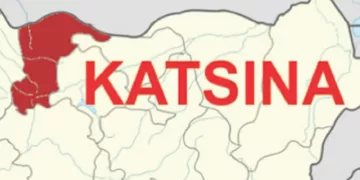Since the advent of democratic governance, what has been central is the level of use of state resources to emancipate the generality of the state. Pivotal to this dispensation and authoritative allocation of values to society rests squarely on the shoulders of those who are either vertically or horizontally placed in positions of responsibility.
Therefore, democratic governance and an accompanying leadership style that is responsible, accountable, and responsive in any society have far-reaching impacts on how the people are governed. The case in Nigeria, with particular reference to Benue State, appears not to be looking different under the prevailing circumstances.
It needs to be reiterated that when a governing elite encourages everyone to participate in all processes, share constructive opinions, and know that such voices will be heard and attended to, a critical mass is encouraged to engage because of the belief that a feedback mechanism will be activated to sort out grey areas.
In Benue State, a new way of doing things is gradually being institutionalized. Governor Hyacinth Iormem Alia’s leadership sits perfectly as an epitaph of strategic focus on prudence, proper placement of priorities, early signs and harbingers of good governance and fiscal responsibility.
In addition, the Governor has taken steps to improve revenue generation in the state. He has initiated programmes and policies to attract investment and encourage economic growth by ensuring that those encumbrances that hitherto pervaded the land and truncated economic activities, such as illegal tax collection points, were dismantled within record time and the culprits brought to justice to give full account for their nefarious actions.
To eliminate leakages in the system that accounted for wasteful spending, Governor Alia has taken a quantum leap aimed at promoting transparency in government. His administration has enforced strict fiscal discipline, cutting down on unnecessary expenditures and monitoring expenditures with an eagle eye. This approach has helped reduce the risk of financial mismanagement and ensure accountability in the use of public funds across all the Ministries, Departments and Agencies (MDAs) in the state.
Through these efforts, Benue State is now assiduously working towards rebuilding the state’s economy, improving public service delivery, and restoring the people’s trust in government institutions. The focus on accountability is a crucial aspect of this rebirth, as it ensures that resources are properly used and that the government remains transparent in its actions.
Recalibrating a new Benue under Governor Alia involves implementing a series of strategies and policy reforms aimed at transforming and improving various sectors within the state.
The Governor’s focus is on attracting investors and promoting entrepreneurship in key sectors of the state’s economy, such as agriculture, tourism, and manufacturing, which are carried out through the provision of incentives, the simplification of the business registration process, and the creation of a conducive business environment.
In line with the mantra of generating wealth from the soil, most profoundly Benue’s agricultural potential, Governor Alia has prioritised providing farmers with improved access to modern farming techniques which would ultimately translate into the transformation of the all-important sector. Consequently and systematically, promoting the cultivation of high-value crops can help increase productivity and profitability for farmers. This will further guarantee their livelihood.
To ensure the effectiveness of the recalibration process, Governor Alia has prioritised good governance, transparency, and accountability
in the administration of public resources. Implementing anti-corruption measures, promoting ethical behaviour among public officials, and encouraging citizen participation have gone a long way in generating trust and promoting all-round development in the state.
The Governor recognizing the global trend in which Information and Communication Technology (ICT) is the in-thing; he extended the crucial touch to embark on initiatives that provide skill acquisition programmes, vocational training, and employment opportunities to the youth. This will lead to a knowledge-based state.
Not left off his radar is environmental sustainability. In view of Benue’s ecological importance, environmental preservation, sustainability, adaptation, and mitigation measures, including afforestation programmes, enforcing environmental regulations, and promoting eco-tourism to protect natural resources and promote sustainable development in the state, have been dispatched.
I learned over the week that an enduring partnership-building effort has been deployed with relevant stakeholders, including local communities, traditional rulers, civil society organisations, and the private sector, to ensure the successful implementation of these strategies.
Regular monitoring and evaluation of progress is vital to making necessary adjustments and maximising the positive impact on the people and the state of Benue. This is where the appointees need to demonstrate their relevance and capacity.
– Kumun, is the Principal Special Assistant to the Governor on Print Media











